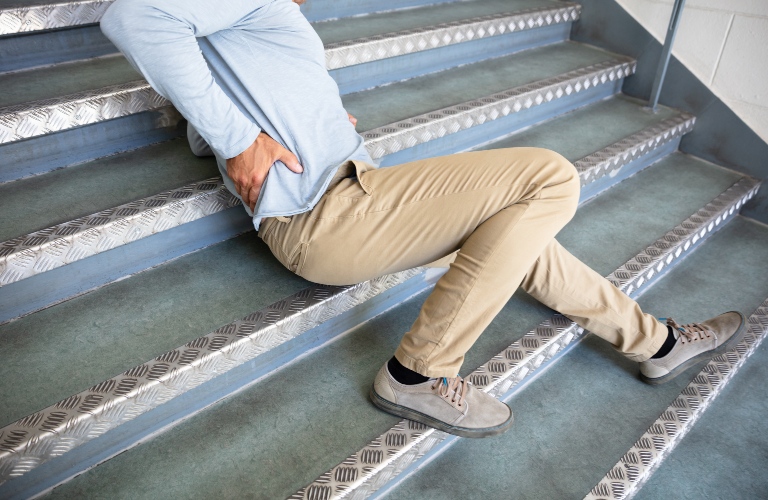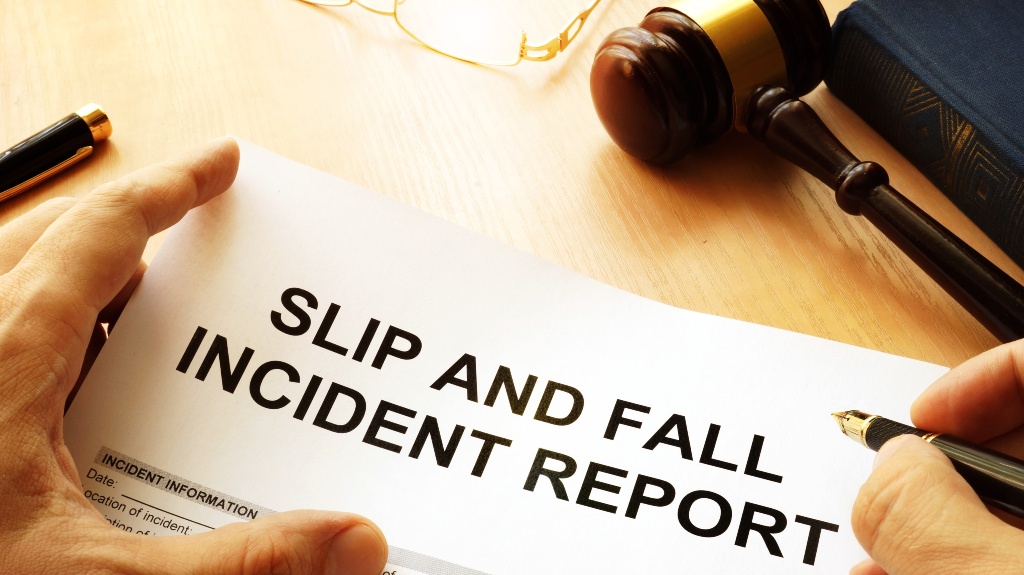Can You Sue a Landlord for a Slip and Fall in Illinois?
One second you’re walking through your apartment complex, and the next, you’re down on the ground with an injury you didn’t expect. These kinds of situations leave many Illinois renters asking who should take responsibility for the accident. Is it possible to hold your landlord liable for your injuries?
The answer relies on many things that vary for each situation. Illinois law spells out certain responsibilities that landlords have, but determining if they failed to meet those responsibilities can be tricky to work out on your own. If you’ve gotten hurt in a slip and fall on property you’re renting, talking to a skilled personal injury lawyer like Michael J. Brennan can be a game-changer. A qualified attorney can look over the specifics of your case and help you see what choices you have.
Landlord Liability in Illinois
Illinois law requires landlords to maintain safe properties for tenants and guests. This includes upkeep of sidewalks, entryways, staircases, and parking lots. Landlords have an obligation to fix hazards like broken steps or icy walkways once they become aware of them.
The law doesn’t expect landlords to prevent every possible accident. However, it does require them to take action when they know about a danger. For example, if a tenant tells a landlord about a loose stair railing and the landlord ignores it, courts might view this as negligence if someone falls and gets hurt later.
The location of an injury plays a key role. Landlords often bear responsibility for accidents in common areas under their control. However, determining fault for falls inside a tenant’s apartment can be trickier and might depend on who was aware of the hazard or who created it.
Every case is unique. The main question in most instances is whether the landlord took reasonable steps to prevent an avoidable accident.
When Is a Landlord Liable?
A landlord doesn’t always bear responsibility when someone gets hurt on their property. In most cases, it boils down to whether the landlord knew or should have known about the dangerous situation, and if they took reasonable steps to fix the problem.
Take this as an example. If a tenant reports a leak that causes water to pool in a hallway and the landlord ignores the complaint, they could be held responsible if someone later slips and falls. The important detail is that the landlord was aware of the issue and failed to correct it.
Landlords can be at fault even when they’re not told about a problem. Take a broken stair that’s easy to spot: if it’s been there for ages, the landlord should notice it during regular checks and fix it. People often call this having constructive notice.
In some instances, the law requires landlords to follow specific safety rules set by local codes. If a landlord breaks these rules and someone gets hurt as a result, it can lead to legal responsibility.
In short, a landlord may be held liable when they fail to take reasonable steps to keep their property safe after becoming aware of a dangerous condition.
Proving Landlord Negligence in an Illinois Slip and Fall Case
If you were injured in a slip and fall on rental property, simply being hurt is not enough to hold the landlord responsible. There are several things that need to be proven in order to bring a successful claim.
First, it must be shown that the landlord had a responsibility to keep the property safe. This usually applies to shared areas like sidewalks, parking lots, stairs, and hallways where tenants and visitors are expected to walk.
Next, you need to show that the landlord failed to meet that responsibility. In most cases, this means showing that the landlord either knew about the dangerous condition or should have known about it, but didn’t fix it in a timely manner.

The landlord’s failure to fix the hazard must also have a direct connection to the accident. This means the injury wouldn’t have happened if the issue had been fixed.
Finally, you must show that you suffered real harm because of the fall. This could include medical expenses, missed work, pain, or other losses connected to the injury.
Every one of these elements plays a key role in making a case. Without them, it’s tough to make the landlord answerable. That’s why talking to a lawyer like Michael J. Brennan can help. He can look over the facts and help you through the steps.
Speak With an Illinois Slip and Fall Lawyer Today
If you were injured in a slip and fall accident on rental property, you may be feeling overwhelmed and unsure about what to do next. These cases can be complicated, and having the right legal guidance can make all the difference.
Attorney Michael J. Brennan has years of experience helping injury victims understand their rights and fight for the compensation they deserve. If you are wondering whether you have a case, do not wait. Contact Michael J. Brennan today to schedule a free legal consultation and get the answers you need to move forward.


